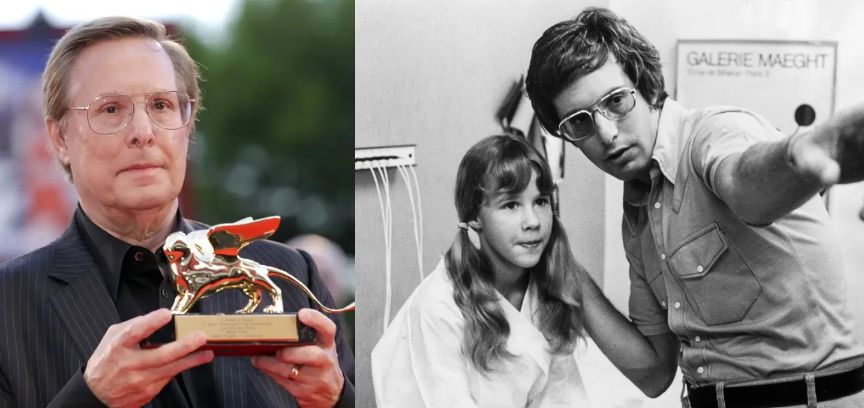Tracing the Life and Legacy of 'The Exorcist' Director William Friedkin
5 min read
26 Mar 2024
William Friedkin, a visionary director renowned for his groundbreaking contributions to cinema, forever etched his name in film history with the iconic horror masterpiece 'The Exorcist.' As we delve into the captivating life and times of this cinematic luminary, we uncover the indelible impact he has left on the world of filmmaking, horror, and storytelling.
Friedkin's journey into the realm of filmmaking began with a passion that would ultimately shape his destiny. Born on August 29, 1935, in Chicago, he initially set his sights on a career in journalism before discovering his fervor for film. This journalistic foundation infused his work with a raw authenticity that became a hallmark of his distinctive style.
In 1973, Friedkin catapulted into international fame with 'The Exorcist,' a horror film that redefined the genre and challenged conventions. The gripping tale of possession and the battle between good and evil not only terrified audiences but also explored profound themes of faith, doubt, and the human condition. The film's immense success solidified Friedkin's status as a visionary director capable of delving into the darkest corners of the human psyche.

Friedkin's directorial approach was characterized by a bold and immersive style that pushed boundaries. He was known for his meticulous attention to detail and his commitment to authenticity. In 'The Exorcist,' he employed practical effects, psychological tension, and a chilling atmosphere to create a visceral experience that resonates with audiences to this day. His dedication to authenticity extended to his unconventional methods of eliciting genuine reactions from actors, sometimes pushing them beyond their comfort zones to capture the raw emotion he sought.
Beyond 'The Exorcist,' Friedkin's filmography boasts a diverse array of works that showcase his versatility and willingness to take risks. In 1971, he directed 'The French Connection,' a gritty crime drama that earned him an Academy Award for Best Director. The film's realistic portrayal of law enforcement and its gripping chase sequences became defining elements of his directorial style.
Friedkin's career was marked by both critical acclaim and bold experimentation. In the 1980s, he directed 'Sorcerer,' a suspenseful thriller that defied traditional narrative structures and featured a gripping tale of a treacherous journey through dangerous terrain. While not initially a commercial success, the film has gained a cult following and is celebrated for its unconventional storytelling and intense visuals.
The director's commitment to pushing boundaries extended beyond filmmaking techniques. He often tackled controversial subjects and explored moral dilemmas, challenging audiences to confront uncomfortable truths. In 1980, he directed 'Cruising,' a crime drama set in the gay leather subculture, which sparked debates about representation, sexuality, and the portrayal of marginalized communities in cinema.
Friedkin's legacy continues to influence filmmakers and storytellers across generations. His contributions to horror and suspense have left an indelible mark on the genre, inspiring subsequent generations of directors to explore the psychological depths of human fear. His unique directorial approach, characterized by authenticity, boldness, and a willingness to tackle challenging subjects, has set a standard for cinematic storytelling that endures.
As we reflect on the life and times of William Friedkin, it becomes clear that his impact extends far beyond his films. He redefined horror cinema, challenged societal norms, and pushed artistic boundaries in ways that continue to resonate. His legacy serves as a reminder of the power of filmmaking to provoke thought, evoke emotion, and leave an indelible mark on culture.
Friedkin's journey is a testament to the transformative potential of following one's passion and embracing the unknown. From his early beginnings as a journalist to his emergence as a masterful director, he proved that a relentless pursuit of creative expression can yield profound results. His dedication to authenticity, fearlessness in tackling controversial subjects, and innovative storytelling techniques have left an enduring legacy that continues to shape the landscape of cinema.
In conclusion, the life and times of William Friedkin illuminate a remarkable journey through the world of filmmaking. From his iconic work on 'The Exorcist' to his explorations of crime, morality, and humanity, he reshaped the cinematic landscape with his unique vision and directorial approach. His influence is felt not only in the horror genre but across a spectrum of storytelling, leaving an indelible mark on the art of filmmaking and the power of authentic expression.



